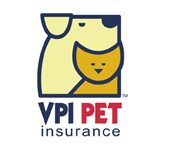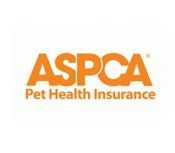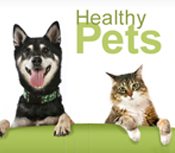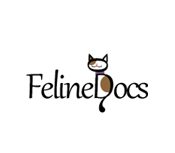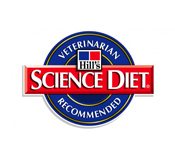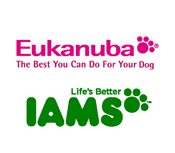Guidelines For The Care Of Your Senior Dog – Age Six And Older
All dogs can develop new illnesses or diseases over their lifetimes. We believe the comprehensive preventative care and responsive treatment are the best approaches to provide your companion with a long, happy, healthful life. The “senior years” bring their own challenges for most individuals. Most of us can expect to experience decreased flexibility, varying degrees of joint pain and arthritic changes, and difficulty with weight management. Other changes can be more serious and can have profound effects on our quality of life. Below are some general recommendations for keeping your senior dog healthy and comfortable.
Our recommendations for the senior dog:
Every six months:
- Physical Exam including dental evaluation
Yearly:
- Annual complete physical exam including dental evaluation
- Scan microchip – ensure function and placement
- Heartworm blood test
- Year-round monthly heartworm prevention (also treats Roundworms, Hookworms, Whipworms)
- Leptospirosis Vaccine
- Fecal exam for intestinal parasites
- Bordetella Vaccine depending on lifestyle – for grooming, boarding, dog parks
- Canine Influenza Vaccine (only if required by grooming and boarding facility)
- Bloodwork and urinalysis to evaluate organ and overall physical health
- Dental cleaning and polish with full mouth X-rays – frequency determined by current dental health
- Necessary treatment for dental disease found during the oral exam and x-ray evaluation
Every Three Years:
- Rabies Vaccination (required by Colorado state law)
- Distemper/Adenovirus/Parainfluenza/Parvovirus – (Distemper/Parvo Vaccine)
As Needed:
- Nail trim – advise monthly – at home, by hospital staff or groomer
- Anal gland expression – by hospital staff only
- Microchip
*If anal glands do not express normally during defecation (pooping) then they will become overly full and painful. If left unexpressed they could become infected and even rupture. Signs indicating full anal glands include: scooting on rear end, biting at back end, limping, and having difficulty defecating.
Common Illness
Common illnesses in senior dogs include dental disease, decreased kidney function, under productive thyroid function, diabetes mellitus, abnormal liver function, and cancer.
It is important to understand that many of these health problems can be managed successfully when detected and treated appropriately.
Signs at home that may indicate a change in your dog’s health include vomiting, diarrhea, drinking more water and urinating more, decreased socializing, decreased appetite and decreased activity.
Laboratory tests are vital in our assessment of your dog’s health and treating underlying disease conditions. Early detection and intervention often allows for successful medical management of serious diseases. When disease is severe or has progressed it is more difficult and more expensive to manage. Cancer is more likely to occur as an animal ages. Many cancers can be detected by routine lab work and physical exams. We will also be evaluating vital organ function and monitoring for chronic diseases such as diabetes. The earlier we intervene, the better the outcome and the more options we will be able to recommend.
In a matter of 30 minutes we can perform a Complete Blood Count (CBC) and Chemistry panel (evaluates blood sugar for diabetes, kidney function, liver status, electrolytes, and many other health indicators).
Often a urinalysis is indicated to look for infection and evaluate kidney function. Other, more specialized, tests can provide specific understanding of disease processes and help determine treatment and prognosis.
When indicated we will recommend lab work and/or other diagnostics, such as X-rays and ultrasound with most illnesses. Northgate Animal Hospital strives to recommend diagnostics and treatment based on the best interest of the patient. We will base our recommendations on our evaluation and consideration of each patient, and family, on an individual basis. Animals age more rapidly than humans and lab values should be reviewed yearly even if they are apparently healthy.
Dental Health
Healthy dog teeth are vital to maintain a healthy dog. Dogs, like humans, build up plaque (soft and gooey) which turns into tartar (cement like) in 24 hours if not brushed away. Bacteria in the mouth and tartar on the teeth combine to cause gingivitis (gum inflammation). Tartar and gingivitis result in periodontal disease (infection of tooth root structures) which often requires extraction or root canal of the diseased teeth. Chewing is an excellent way to clean teeth, but hard objects such as bones, antlers and Nyla bones are too hard and will break teeth. Broken teeth are painful and susceptible to root infection as well. NGAH is highly motivated to help you maintain your furry friend’s dental health and can recommend many at-home dental care options including teeth brushing and CET dental health products. The rule for chew toys: If you hit your knee cap with it and it hurts, then it is too hard for your dog’s teeth and will break them!
Discomfort/Pain
At NGAH our doctors and staff are highly trained and attuned to non-verbal/non-vocal communication from your companions. A large part of our efforts are to perceive/interpret/diagnose and treat pain in our furry friends. Guardians often misinterpret silence and average behavior as comfort. Although animals will often cry out with sudden pain, animals often do not vocalize chronic pain. Consequently, many guardians do not perceive more subtle cues as indicators of pain. We often are told by guardians that their limping dog is not in pain, however, a limp indicates pain in an animal just as a human who limps is in pain. Many dogs will show pain by an abnormal sit posture, chewing food on one side, dropping food, and decreased activity.
Grooming
The level of grooming will vary greatly by the breed of your furry friend. We are happy to discuss grooming needs for each of your companions based on breed and family lifestyle. Nails should be trimmed as needed every 2-4 weeks. We are happy to teach you how to trim nails at home.
Behavior
Many senior dogs are happy and well adjusted. However, we can help with emerging and/or chronic behavior issues as the need arises. Dogs finish physical growth at 1-2 years of age depending on the breed; large dogs mature more slowly. Behavioral growth and changes continue to around 4 years of age. We see puppies grow out of some behaviors such as chewing and hyperactivity. However, as dogs mature some behaviors become more prominent, such as separation, anxiety, and aggression. Please let us know if you have questions and would like help with behavior issues, as we have many management options, including handling and training techniques, and medical considerations as well.
Companion Health Insurance
We strongly recommend companion health insurance for every furry companion. Health insurance will ease the stress of financial consideration when making decisions for your dog’s routine and sick health care. Northgate Animal Hospital has no direct relationship with any insurance company. Clients file claims directly with their chosen insurance company. Following are some companion health insurance companies to consider:
Reliable Websites
Nutrition for the Healthy Senior Dog
Companion nutrition is a very confusing topic with all of the choices we have for food and diet recommendations from many different and conflicting sources. The companion food industry has become a multi-billion dollar industry in the last several years. While it is wonderful that our furry friends are such an important part of our families, this extreme and rapid growth is leading to many niche diets that are based on fads and media exposure of many human issues that may or may not be relevant or even appropriate for canine nutrition. We often see gastrointestinal distress directly caused by the well-intentioned but misguided attempts of companion guardians trying to provide what they have been told by the sales representatives of many commercial diets.
Guidelines for choosing a diet for your healthy senior dog:
1) Dogs are omnivores, not strict carnivores. This means dogs need meat protein, carbohydrates, and fat.
2) Carbohydrates may be provided by grain sources and non-grain sources. Dogs are not inherently grain sensitive. Some dogs may be grain sensitive, but many are not.
3) Dogs are fat sensitive. This means that high fat foods-even “just a bite” or even if “she has eaten this all of her life”-can cause a spectrum from mild to severe, gastrointestinal upset and even pancreatitis. GI upset/pancreatitis can cause vomiting, diarrhea, refusal to eat and pain. Severe cases require hospitalization on IV fluids and supportive care.
4) Bones/antlers are very dangerous for dogs. They can cause mild to severe GI upset, pancreatitis, obstruction of the intestines and perforation of the intestines. All of these conditions can be very painful, expensive, and even life threatening. Although bones are great for cleaning teeth, unfortunately, they are also really great for breaking teeth. Broken teeth are painful, require surgical extraction, and can cause additional disease affecting other teeth and other vital organs of the body.
5) Raw meat is an incomplete diet source, may cause GI upset, and even be the source of life-threatening infections of Salmonella and E. coli. Please read the included AVMA policy on raw food diets.
6) Meat by-products (heart, liver, spleen, empty/clean intestines, blood, kidneys) are actually highly nutritional and do not include hide, hair, hooves, and teeth.
NGAH recommends companion animal nutrition providers who have been developing and researching appropriate canine nutritional diets for decades. These companies spend millions of research dollars to determine the best sources and ingredients for balanced canine nutrition.
NGAH recommends:
Weight management
Obesity is a common problem in our senior furry friends. At NGAH, we are very proactive in assessing a healthy body condition score and weight for every patient. Obesity leads to joint problems, pain, increased workload on the heart, breathing complications, inability to go for walks, and even diabetes mellitus. Obesity significantly reduces lifespan by several years. We are very happy to help you develop and maintain a healthy diet, feeding and exercise program for your furry friend.
Dietary Supplements
Dogs on a high quality balanced diet do not need vitamin supplements. However, Essential Fatty Acids (fish oils) are very beneficial for healthy skin in our very dry Colorado climate.



